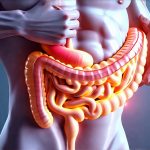Athletic performance is a complex interplay of numerous factors – training intensity, nutrition, sleep, genetics, and mental fortitude all contribute to an athlete’s success. Increasingly, research is highlighting the pivotal role of the gut microbiome in this equation. For years, attention focused almost exclusively on macronutrient intake and hydration strategies for recovery, but now we are beginning to understand that a healthy gut – teeming with beneficial bacteria – can significantly influence everything from muscle function and energy levels to the rate of recovery after strenuous exercise. This is where probiotics come into play: live microorganisms intended to confer a health benefit when consumed in adequate amounts. While often associated with digestive health, their potential impact on athletic performance is rapidly gaining recognition as scientists uncover the intricate connection between gut health and overall physiological well-being.
The link isn’t simply about feeling good; it’s deeply rooted in biological processes. The gut microbiome influences inflammation levels, nutrient absorption, immune function, and even hormone regulation – all critical aspects of athletic recovery and performance. Intense exercise creates a unique stress on the body, leading to muscle damage, oxidative stress, and temporary suppression of the immune system. A compromised gut can exacerbate these effects, slowing down recovery and increasing susceptibility to illness. Conversely, a robust microbiome can help mitigate these negative impacts, supporting faster healing, improved energy utilization, and enhanced athletic capacity. Understanding how probiotics contribute to these processes is key for athletes looking to gain an edge and optimize their performance.
Probiotic Influence on Muscle Recovery & Inflammation
Following intense physical exertion, the body initiates an inflammatory response as part of the natural muscle repair process. While some inflammation is necessary for adaptation and growth, chronic or excessive inflammation can hinder recovery, leading to delayed onset muscle soreness (DOMS), fatigue, and increased risk of injury. Probiotics may play a role in modulating this inflammatory response. Certain strains have demonstrated an ability to influence cytokine production – signaling molecules that regulate the immune system and inflammation. Specifically, some probiotics can help reduce pro-inflammatory cytokines while promoting anti-inflammatory ones.
This modulation isn’t a direct suppression of inflammation; rather it’s about restoring balance. A healthy gut microbiome contributes to a more regulated immune response, preventing an overreaction that leads to prolonged discomfort and impaired recovery. Further research is needed to identify the most effective probiotic strains for athletic populations, but studies suggest that Lactobacillus and Bifidobacterium species are particularly promising in this regard. These bacteria can positively impact gut barrier integrity, reducing “leaky gut” – a condition where harmful substances leak from the intestines into the bloodstream, triggering systemic inflammation. Understanding how menstrual cycles can affect overall health is also important to consider in recovery.
Beyond cytokine modulation, probiotics may also influence muscle protein synthesis, the process responsible for repairing and building muscle tissue. Some studies suggest that certain probiotic strains can enhance amino acid absorption and utilization, providing the necessary building blocks for muscle recovery. This is particularly important after strenuous exercise when muscles are depleted of glycogen and require rebuilding. It’s crucial to remember, however, that probiotics aren’t a substitute for adequate protein intake – they act as a complementary factor in optimizing muscle repair and growth.
The Gut-Muscle Axis & Metabolite Production
The bidirectional communication between the gut microbiome and skeletal muscle is often referred to as the gut-muscle axis. This connection isn’t just theoretical; metabolites produced by gut bacteria can directly influence muscle function. Short-chain fatty acids (SCFAs) are a prime example. These compounds, created when gut bacteria ferment dietary fiber, have been shown to possess anti-inflammatory properties and enhance energy metabolism in muscles. Increased SCFA production is linked to improved endurance performance and reduced fatigue.
Probiotics contribute to SCFA production by promoting the growth of beneficial bacteria that specialize in fiber fermentation. Different probiotic strains produce varying amounts of SCFAs, highlighting the importance of strain selection based on athletic needs. For example, Bifidobacterium species are known for their ability to produce acetate, propionate, and butyrate – all crucial SCFAs with distinct health benefits. Butyrate, in particular, is a primary energy source for colon cells, contributing to gut barrier integrity and overall digestive health. When considering diet choices, it’s helpful to rotate foods to ensure a diverse intake of nutrients.
Furthermore, the gut microbiome influences amino acid metabolism, impacting muscle protein synthesis. Certain bacteria can break down proteins into usable amino acids, while others synthesize essential amino acids that the body cannot produce on its own. This metabolic activity is crucial for athletes who require higher amounts of amino acids to support muscle recovery and growth. Probiotic supplementation may optimize these processes, ensuring a consistent supply of building blocks for muscle repair.
Immune System Support & Reduced Illness Risk
Intense training can temporarily suppress the immune system, making athletes more vulnerable to upper respiratory tract infections (URTIs) – commonly known as colds and flu. This is because strenuous exercise increases cortisol levels, which can inhibit immune cell function. A healthy gut microbiome plays a critical role in maintaining immune homeostasis and reducing susceptibility to illness. Approximately 70-80% of the immune system resides in the gut, making it a central hub for immune regulation.
Probiotics can enhance immune function through several mechanisms. They compete with pathogenic bacteria for resources and adhesion sites in the gut, preventing infection. They also stimulate the production of antibodies and activate immune cells, strengthening the body’s defenses. Specific strains have been shown to increase levels of immunoglobulin A (IgA), an antibody that protects against respiratory infections.
By bolstering the immune system, probiotics can help athletes stay healthy and maintain consistent training schedules. Reduced illness risk translates directly into improved performance and reduced disruption to training plans. It’s important to note that probiotic supplementation is not a substitute for other preventative measures, such as proper hygiene, adequate sleep, and stress management – it’s an additional layer of support for immune function. If you find yourself feeling unwell, understanding anxiety and its effects on digestion can be useful.
Optimizing Probiotic Selection & Implementation
Choosing the right probiotic supplement can be daunting given the vast array of options available. It’s crucial to move beyond generic “multi-strain” formulas and consider factors specific to athletic needs. Strain specificity is paramount – different strains have different properties and effects on the body. Researching which strains have demonstrated benefits in relation to muscle recovery, inflammation, or immune function is a good starting point. Look for products that clearly identify the strain designation (e.g., Lactobacillus plantarum 299v) rather than just the genus and species.
Timing of probiotic consumption can also influence effectiveness. Some studies suggest that taking probiotics around training sessions – before, during, or after exercise – may be more beneficial than continuous supplementation. This is because the gut microbiome undergoes changes during and after intense physical activity, making it more receptive to probiotic colonization. However, individual responses vary, so experimentation may be necessary.
Finally, dietary considerations are essential. Probiotics thrive on prebiotic fiber, which serves as food for beneficial bacteria. Incorporating a diet rich in fruits, vegetables, whole grains, and legumes can enhance the effectiveness of probiotic supplementation. Fermented foods like yogurt, kefir, sauerkraut, and kimchi also contain live cultures that contribute to gut health. It’s important to remember that probiotics are most effective when integrated into a holistic approach to athletic recovery and performance – including proper nutrition, hydration, sleep, and training practices. Digestion slows as we age, so it’s important to adapt dietary habits accordingly. Paying attention to meal texture and temperature can also impact your gut health. Additionally, understanding how hormones influence digestion is crucial for optimizing overall well-being. Lastly, be mindful of potential issues with long-term acid exposure.


















